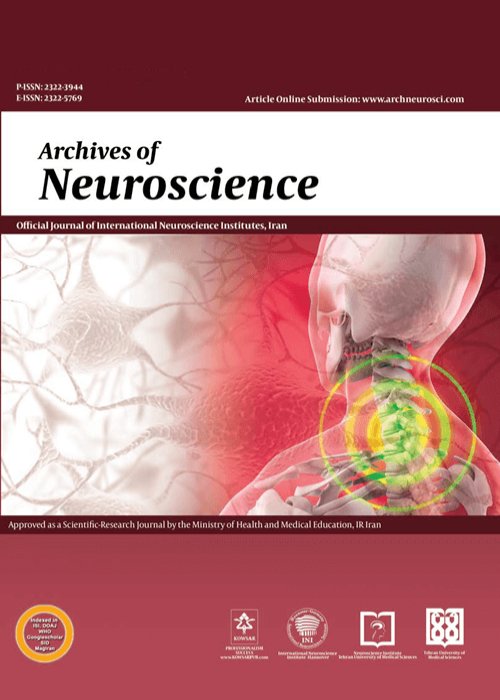Clinicians’ Approach to Cognitive Impairment After Electroconvulsive Therapy: Current Situations and Challenges
Electroconvulsive therapy (ECT) is one of the most effective treatments for severe refractory mental diseases. Widespread cognitive complications have affected the acceptance of this treatment. Despite current evidence of short-term cognitive impairment, long-term cognition consequences are less determined.
This study aimed to evaluate the clinical approach of psychiatrists, psychiatry residents, and nurses in psychiatric hospitals to the necessity, method, and frequency of cognitive assessment in candidate patients for ECT.
In this descriptive study, 89 professional members of Roozbeh and Razi hospitals, Tehran, Iran, including nurses, residents, and faculty members of psychiatry, were selected using the purposive sampling method. The research questionnaires were sent, and 58 fulfilled questionnaires were sent back. The data were analyzed using central indicators and statistical dispersion. The designed questionnaire included the items related to the specialists’ views on the necessity of post-ECT cognitive evaluations, best batteries, frequency of performing the tests, and other related domains.
After close follow-up, 58 out of 89 participants completed the questionnaires, including 17 psychiatrists (29.3%), 20 nurses (34.5%), and 21 psychiatry residents (36.2%). The results were analyzed and interpreted in detail. The average work experience of respondents in the psychiatry field was 6.89 years (range: 1 - 25 years). Additionally, 97% of the specialists did not have any project in the ECT field and cognitive disorders. More than 80% of the participants believed that cognition evaluation is necessary for ECT-candidate patients; however, only 15% of the specialists referred patients for the assessment. Moreover, 43% of the experts recommended the Wechsler Memory Scale-Revised; nevertheless, nearly 26% of the experts recommended the Delis-Kaplan Executive Function System for the cognitive assessment of these patients. The Rey Auditory Verbal Learning Test was recommended by 20% of the experts. Nearly two-thirds of the respondents believed that a proper assessment should be carried out in about 30 minutes. More than 60% of the experts believed that patients should be evaluated before receiving the first session of ECT, and nearly one-third of the experts recommended only a post-ECT evaluation. More than half of the experts believed that ECT should be discontinued in case of severe cognitive impairment after ECT. Alternatively, less than 30% of the experts believed that it is necessary to make changes in the treatment dose and the interval between sessions. Furthermore, 80% of the experts recommended cognitive rehabilitation for patients with significant cognitive impairment after ECT; nonetheless, less than 20% of the experts recommended treatment with a cholinesterase inhibitor.
A large percentage of patients do not undergo a comprehensive cognitive assessment before ECT, which is an important challenge in the estimation of post-ECT cognitive decline. There is a need to design inexpensive and sensitive tests for cognitive assessment. The test could measure different cognitive domains and be acceptable in terms of time. Due to the limited number of specialists working in this field, the frequency of assessment and treatment methods after the identification of cognitive disorders are heterogeneous. Therefore, it is required to design a native and practical guideline. These results could help the researchers design future studies to determine the best method of cognitive evaluation after ECT, appropriate batteries, recommended intervals, and treatment decisions after cognitive decline detection.
- حق عضویت دریافتی صرف حمایت از نشریات عضو و نگهداری، تکمیل و توسعه مگیران میشود.
- پرداخت حق اشتراک و دانلود مقالات اجازه بازنشر آن در سایر رسانههای چاپی و دیجیتال را به کاربر نمیدهد.



